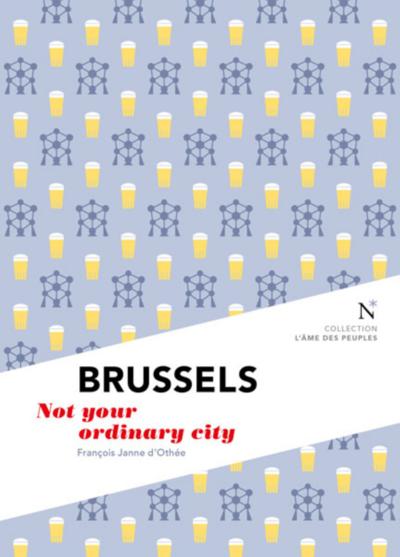- EAN13
- 9782875231055
- Éditeur
- Nevicata
- Date de publication
- 23 décembre 2016
- Dimensions
- 16 x 12 cm
- Poids
- 100 g
Brussels - Not Your Ordinary City
François Janne D'Othée
Nevicata
Prix public : 9,00 €
Brussels fascinates and intrigues. How is it that this city — a hodgepodge where the worst atrocities of urban planning sit side by side with architectural jewels — can be so charming and seductive, to the point of being the envy of other large European cities ? Although Brussels is landlocked within Flanders, French is by far the dominant language. The Kingdom of Belgium's multicultural capital, whose 19 « communes » range from working-class Molenbeek to upscale Uccle, has become the country's artistic centre, an extraordinarily creative centrifugal force. Crossing Brussels today is as much to travel through time as it is to take tour of diverse dialects and world foods. This little book is not a guide, but rather a key. It allows the reader to understand the slow transformation of an ancient bourgeois town which many thought had drifted into a deep sleep. Until it became the capital of Europe. In order to be understood, Brussels must be decoded. This is not your ordinary city. Brussels is much more than a city. This book comprises a short travel account followed by interviews with three prominent local thinkers : historian Roel Jacobs (No one has ever been able to finish what he started here) social activist Fatima Zibouh (Molenbeek is no Wild West !) and philosopher Philippe Van Parijs (Brussels should aim for a trilingual future). This insightful book will walk you through Brussels' history and cultural heritage and help you understand the wonderful kaleidoscope it is today. EXCERPTIs there such a thing as the Brussels spirit ? Indeed there is, in the sense that it summarizes the sometimes surreal country that produced René Magritte. If there were no Brussels, Belgium would surely not exist, for Brussels is the keystone to the country's structure. However, the capital of Belgium is weakened by institutional complexity, wedged as it is between the Flemish and Walloon regions. Furthermore the Brussels spirit is inseparable from the Brussels accent, which is indispensable for uttering expressions such as « Arrête une fois de zieverer, dikkenek ! » 1 Not to be confused with the Belgian accent, which doesn't really exist anyway. And then there is the city's international status. How many cities can boast that they have an airline named after them ? « It's because Brussels is a strong brand name », we are told, even stronger than Belgium's. If that is true, it is thanks to Europe and its 12 stars, which brought the city out of provincial obscurity and placed it squarely on the world stage. The economic benefits from the presence of the European Union are obvious, even though the average Bruxellois loves to criticize Eurocrat salaries, considered outrageous by many.


















